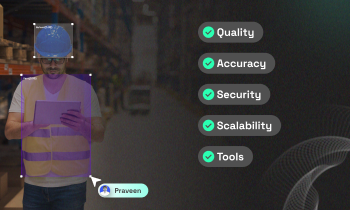Are call center speech datasets anonymized?
Anonymized Datasets
Privacy
Data Protection
Yes, and they must be. Anonymization is crucial for protecting user privacy and ensuring compliance with legal and ethical standards.
When working with speech data, especially from call center environments, privacy and compliance are top priorities. Call recordings often contain sensitive personal information (PII) such as names, phone numbers, account details, and addresses. For any organization using real call recordings, anonymization is not just recommended; it is mandatory under regulations like GDPR, HIPAA, and local data protection laws.
But what happens when your data doesn’t come from real-world call traffic but is instead carefully curated, simulated, and structured for AI training?
That’s precisely how we approach it at FutureBeeAI.
Anonymization Is Critical for Real Call Data
When clients acquire real call center recordings, even with consent, these recordings still carry privacy risks if used without proper anonymization. This is because real call content may contain:
- Full names and customer IDs
- Phone numbers, email addresses
- Transaction IDs, order numbers
- Addresses, location-specific references
- Financial or health-related information
To make this data usable for AI model training or product deployment, robust anonymization pipelines must be applied, including:
- Audio redaction or masking
- Transcript-level PII tagging and replacement
- Metadata scrubbing and tokenization
Only after these steps can real-world call data be used in a compliant and risk-free manner.
The FutureBeeAI Approach: Simulated, Yet Realistic
At FutureBeeAI, we curate our call center speech datasets, which means we do not rely on sensitive, third-party, or uncontrolled sources. Our datasets are simulated but designed to reflect real-life call center dynamics accurately.
This gives us two significant advantages:
1.No Real Personal Information
All PII in our datasets is dummy data, crafted in correct formats but not linked to real individuals.
Examples include:
- “My order number is 12345AB.”
- “Please send the OTP to my email, james@finance.com”
- “I’m from Sector 45, Gurgaon”
These are synthetic yet realistic, ensuring model generalizability without breaching privacy.
2. No Mandatory Anonymization is Needed
Since there’s no actual PII, there is no legal requirement for anonymization, making our speech datasets faster and safer to use in product development, testing, or large-scale model training.
Optional PII Tagging for Model Training
Even though anonymization is not required, we still support PII tagging in our annotation workflows for specific use cases, such as:
- Training models to detect and redact personal information
- Evaluating privacy-aware NLP systems
- Testing entity recognition and classification models in compliance settings
Our datasets can include the following:
- PII tag categories (e.g., <name>, <email>, <phone_number>)
- Time-stamped labels in transcripts and metadata
- PII-rich scenarios across domains like BFSI, healthcare, and telecom
This flexibility allows clients to train responsibly, even when working on privacy-critical applications.
Conclusion
Yes, anonymization is essential, but only when real personal data is involved. At FutureBeeAI, we take a forward-thinking approach by creating high-quality, privacy-safe, simulated datasets that mimic the complexity of honest conversations without any associated risks. And when your use case requires it, we support PII tagging and masking workflows to train the next generation of privacy-compliant AI systems.
What Else Do People Ask?
Related AI Articles
Browse Matching Datasets
Acquiring high-quality AI datasets has never been easier!!!
Get in touch with our AI data expert now!








